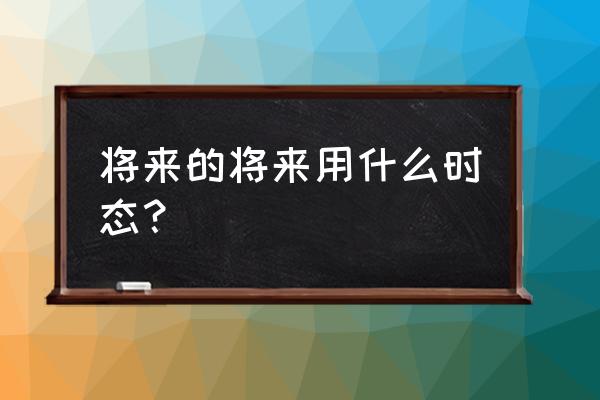将来进行时表将来

将来的将来用什么时态?
将来的将来用什么时态?
将来的将来用一般将来时。
比如:我明天晚上回家后,就给你打电话,回家是将来...电话是将来的将来...
After I go home tomorrow, I will call you.
一般将来时 :表示将来的动作或装态。
一般将来时的构成: shall (will) 动词原形.
助动词 shall用于主语是第一人称时,will 用于主语是第三人称时。
I shall attend the meeting tomorrow. The workers will build a school here next year.
否定形式是在 shall 或 will 后面加 not 构成,即: shall not 动词原形(shan#39t )。 will not 动词原形(won#39t )。
I shall not go to the Yingze Park next time. He won#39t come back this week.
将来的将来用什么时态?
will/ shall 动原,表示将来的动作或状态。
e.g. He will be a billionaire when he grows up.
be going to 动原,表示即将发生或近期计划的事情。
e.g. Mr. Liu is going to spend his holiday in Hawaii.
be about to 动原,表示即将发生的动作
注意:该结构不与将来时间状语连用。
Ted is about to eat outside tomorrow evening.
My uncle was about to leave when I arrived at home.
be to 动原,表示按计划要发生的动作或用于征求对方意见。
e.g. Are we to leave for London this afternoon?
一般现在时表将来在when, while, before, after, once, as long as, unless, as soon as等引导的时间状语从句中,通常用一般现在时表示将来时态。
e.g. The liitle boy is going to visit the Great Wall as soon as he gets to Beijing.
现在进行时表将来强调近期、按计划或安排要发生的动作,谓语通常是瞬时性动词(come, go, arrive, start, begin, leave等)。
e.g. They are coming home in half an hour.
We are starting this project this year